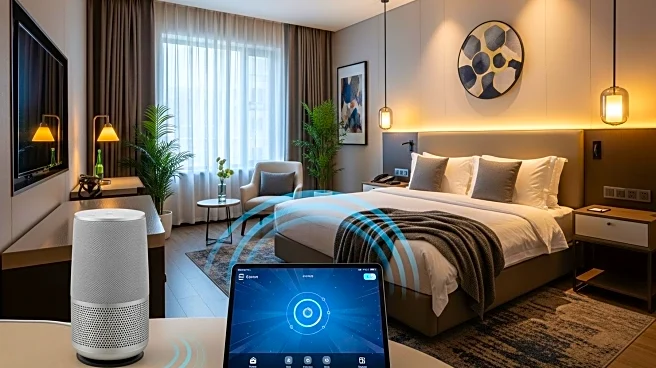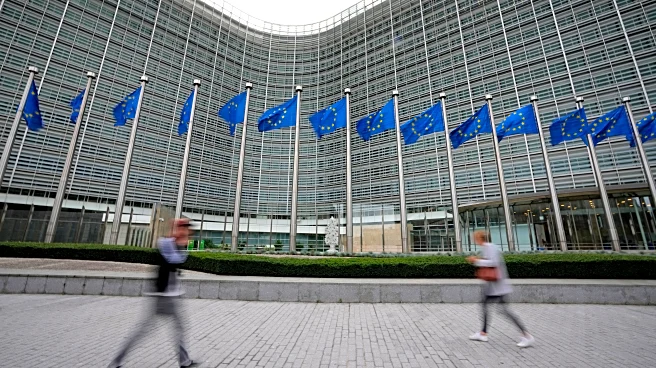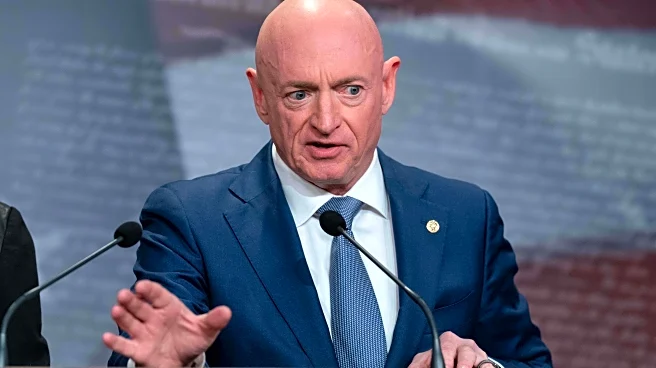What's Happening?
The hospitality industry is undergoing a significant transformation with the advent of 'smart hotel rooms,' which integrate advanced technologies to enhance guest experiences. According to the '2025 Hotel Room Innsights' report, 56% of hotels feel pressured to keep up with technological advancements to meet guest expectations. Innovations such as smart lighting systems, AI-driven concierge services, and technologically advanced bathrooms are becoming standard. However, the report emphasizes the importance of balancing these advancements with the 'human touch' that guests still value. Many hotels are adopting 'ComfortTech,' focusing on practical technologies like high-speed Wi-Fi and smart TVs, which are now seen as baseline expectations. Despite the rise of technology, 70% of hotels report that guests prefer direct interaction with staff, highlighting the continued importance of personalized service.
Why It's Important?
The integration of smart technologies in hotel rooms represents a broader trend in the hospitality industry towards enhancing guest comfort and convenience. This shift has significant implications for hotel operations, potentially increasing efficiency and sustainability through energy-saving systems and reduced resource consumption. However, the emphasis on maintaining human interaction underscores the industry's recognition of the irreplaceable value of personalized service. Hotels that successfully balance technology with human touch may gain a competitive edge, attracting tech-savvy guests while retaining those who value traditional hospitality. This trend also reflects a growing consumer expectation for seamless, intuitive experiences in all aspects of travel and accommodation.
What's Next?
As hotels continue to innovate, the focus will likely remain on technologies that enhance guest personalization and operational efficiency. Future developments may include AI-driven solutions for real-time language translation and energy-saving automation, as well as robotic solutions for food preparation and cleaning. The challenge for the industry will be to ensure these technologies are user-friendly and do not detract from the guest experience. Hotels may also need to provide more comprehensive demonstrations of new technologies to prevent guest frustration. The ongoing evolution of smart hotel rooms will require a careful balance between technological sophistication and ease of use.
Beyond the Headlines
The rise of smart hotel rooms may also have broader cultural implications, as it reflects a shift towards a more technology-driven society. This trend could influence guest expectations in other areas of life, such as dining and entertainment, where technology is increasingly integrated. Additionally, the focus on sustainability in hotel technology may contribute to broader environmental goals, encouraging other industries to adopt similar practices. The hospitality industry's approach to balancing technology with human interaction could serve as a model for other sectors facing similar challenges.









